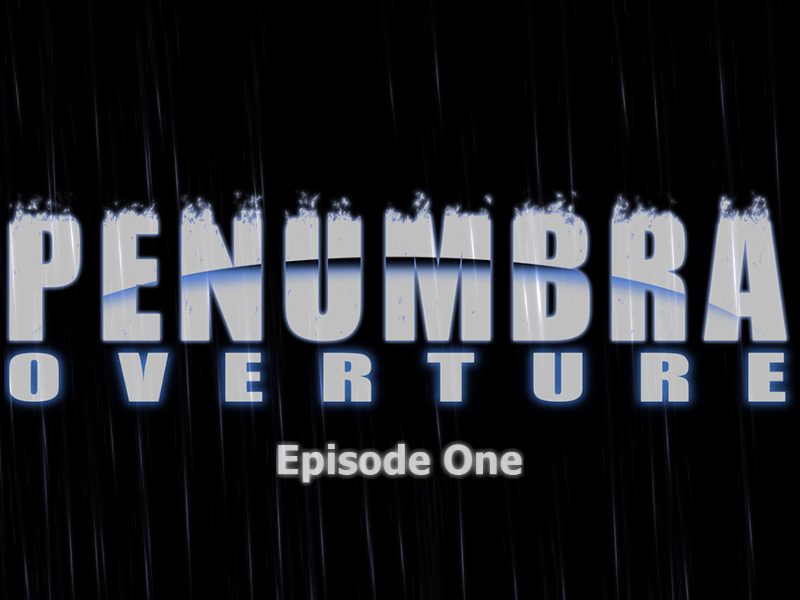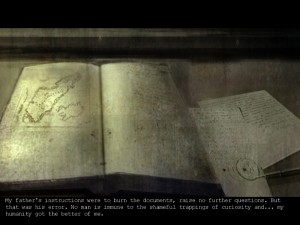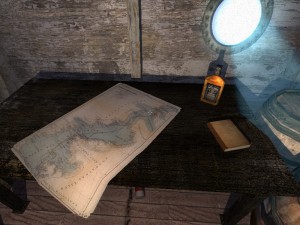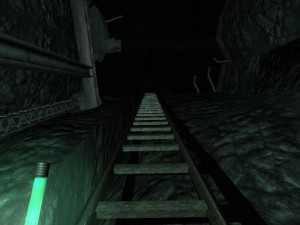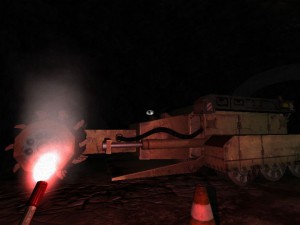In recent years, the game industry has seen a sharp decline in the survival horror genre. While every so often, the world sees the release of a North American-developed Silent Hill installment, these experiences pale in comparison to what many people remember as truly horrifying. Games like Alone in the Dark, the original Silent Hill, Clock Tower, and even the first couple Resident Evil installments all managed to put the player at odds with an overwhelming opposition. At its core, Survival Horror suggests many intriguing and terrifying prospects: little to no weapons or defense, supernatural horrors hunting you, and coping with a world and atmosphere poised against you. In 2007, a small group of developers in Sweden calling themselves Frictional Games, broke onto the scene with their title, Penumbra: Overture. A welcome return to the survival horror genre, players were assaulted on all sides by environmental hazards, sinister creatures that dwelt beneath the earth, and, at times, their own inability to press on from sheer anticipation of the next horror.
Being an adventure game, there is a tremendous emphasis on narrative and story in Penumbra: Overture. As a young scholar named Philip, you receive a parcel from your long-deceased father with a map of a mine in Greenland and instructions to burn everything in the package and forget you ever found the accursed map. Unfortunately, Philip is plagued by the sinister itch of curiosity and, instead, books a flight to Greenland, hoping to find the answers to his father’s disappearance and the secrets of the mine. The story is inextricably torn from the pages of H.P. Lovecraft where an everyman faces ancient horrors all because he couldn’t leave well enough alone. While Philip isn’t the most talkative character and voiced dialogue is few and far between, his inner monologue (displayed with subtitles at the bottom of the screen) paints a detailed portrait of a lonely man disenchanted with the world of academia and, really, the world at large.
At its very core, Penumbra: Overture is an adventure game. Obtaining and applying items from the environment is essential to Philip’s prolonged survival, and like any adventure game, the answer can be staring you in the face for hours before you realize what you have to do. Where the game deviates from the tried and true formula is in its perspective. Like Myst or Return to Zork, the game is in first-person perspective, but there is the added element of real-time which adds the feel of a first-person shooter to the experience. You gather and interact with objects in real-time and are stalked frequently by enemies which often requires you to learn and memorize enemy patrol patterns in order to avoid a nasty surprise from behind.
Players navigate the nightmarish underground of the mines with typical controls you would find in any FPS to date: WASD and the mouse to look. In addition to the classic click and interact interface and an intuitive inventory system, the developers created a physics engine reliant on the users own mouse movement. Example: early in the game, there’s a hatch that the player needs to force open in order to affect ingress into the mine. The hatch has a layer of ice frozen on top and the hatch won’t budge. The player must take a couple steps back, find a rock, pick it up, and either drop the rock on the hatch, or lift it over the hatch and then quickly pull the mouse down; bringing the rock in a downward swing smashing the ice. This same mechanic can be used for throwing bait or taking a swing at an enemy. Unfortunately, this mechanic requires some practice and finesse and isn’t perfect. In some ways, the finicky nature of this gameplay mechanic further adds to the horror of a physical confrontation, and further promotes stealth over balls-to-the-wall charge tactics.
Penumbra: Overture does an incredible job of making the player feel insignificant from the get go. As you grope blindly through the darkened depths, you are constantly reminded of your own loneliness by frequent pieces of literature from those that came before you and the voice of Red. Red is an enigmatic character and game mechanic. While he contacts you at irregular intervals of the story via radio, you never really feel that he is in possession of his mental faculties or in any way endearing or concerned about yours. Still, he is the only thing vaguely resembling a voice of reason and you are tasked with seeking him out, unsure if he is friend or foe, but not really concerned, considering the other inhabitants you’ve dealt with prior. Sound design plays a major role in the player’s experience: the distant growl of an emaciated wild dog, the clicking sounds of a spider, the full-bodied roar of a carnivorous worm, the disembodied and unintelligible whispers that lurk in the darkest corners of the mine.
One of the most interesting aspects of the game is a sanity system. Flight is often much more efficient than fight during your encounters with the underground inhabitants, but the factor of paranoia is also present because of this. While some enemies are easier to hide from than others, you must also avoid looking at your enemies or making eye contact with them. Philip, a meek college professor by the sounds of it, is ill-prepared for these encounters and prolonged exposure to the sight of some of these creatures can cause him to unwillingly “yelp” or breathe loudly, instantly giving away his position to the enemy. Other symptoms of this affliction include blurred vision and distorted perspective, which is especially daunting if you’re running from something and trying to walk across a gap on a single plank of wood.
As a survival horror/adventure game, Penumbra: Overture succeeds in drawing in the player with its dark narrative and endearing, but minimalist cast. The games biggest hurdle, mastering the physics based combat system, is also its greatest strength further driving home the overwhelming sense of terror. Enemies that you’re better off avoiding are much more terrifying as they stalk the halls seeking you out. While the story can be tough to piece together at times, the overall narrative regarding Philip and his search for civilization is both intriguing and, at times, tragic. The game’s ending succeeds at raising more questions than it does answer, but as a series, this is to be expected. Originally intended to be a trilogy, Frictional Games has only managed to make the sequel Penumbra: Black Plague and the expansion Penumbra: Requiem (which doesn’t advance the story by much). All three of the Penumbra Series games can be bought in a collection, but by the end, you feel like you missed out on some important details. It’s rumored that Frictional Games was forced to truncate the trilogy to a two-part series when their previous publisher, Lexicon, didn’t feel like paying them properly. Whether or not this is true, the resolution to the series when you get to part 2 (Black Plague) feels rushed, but I’ll get into that more in the upcoming review.
The official Penumbra Series site can be viewed here. Stop by and grab the demo and if you like it, let these guys know and buy the collection.

